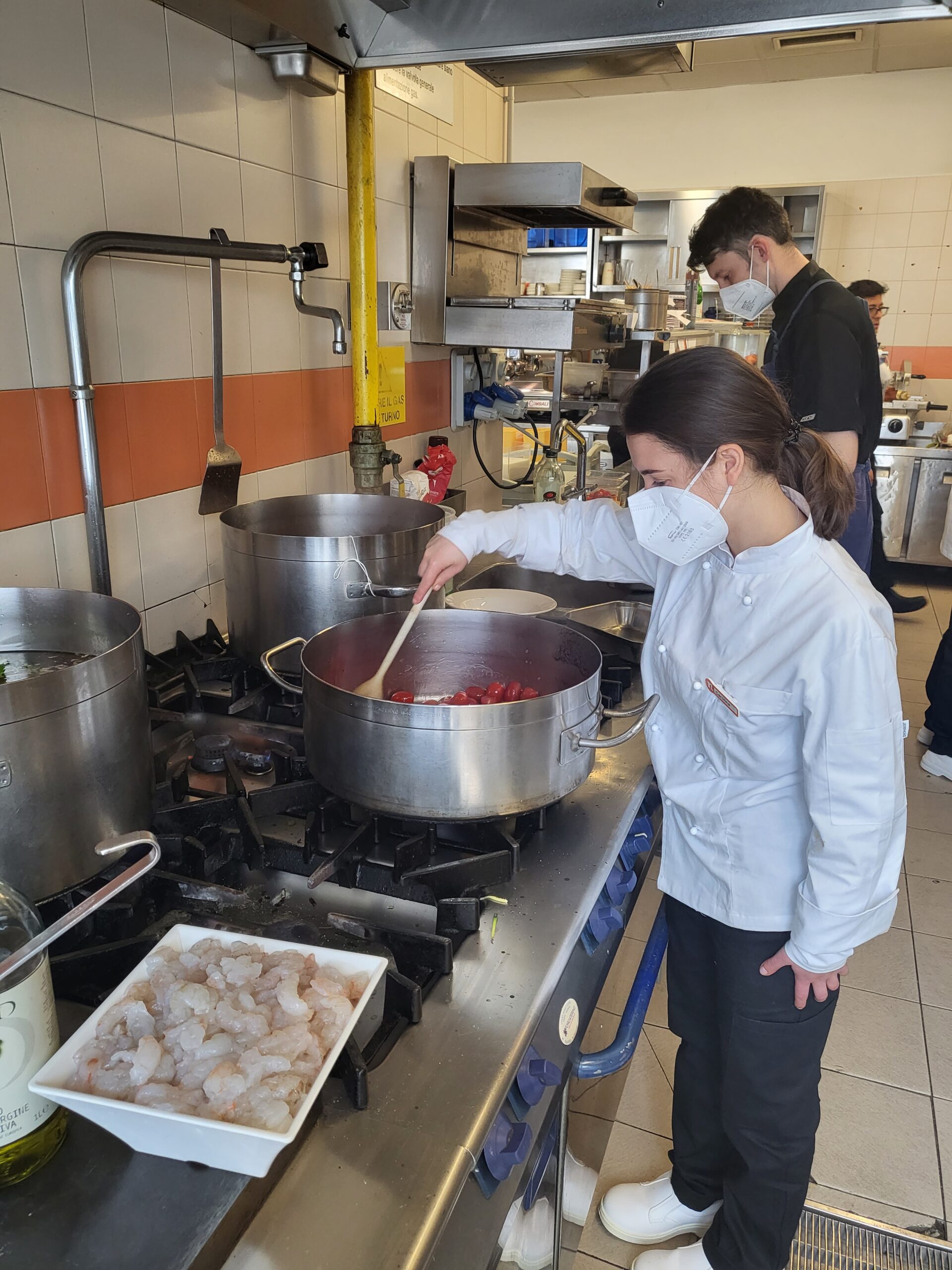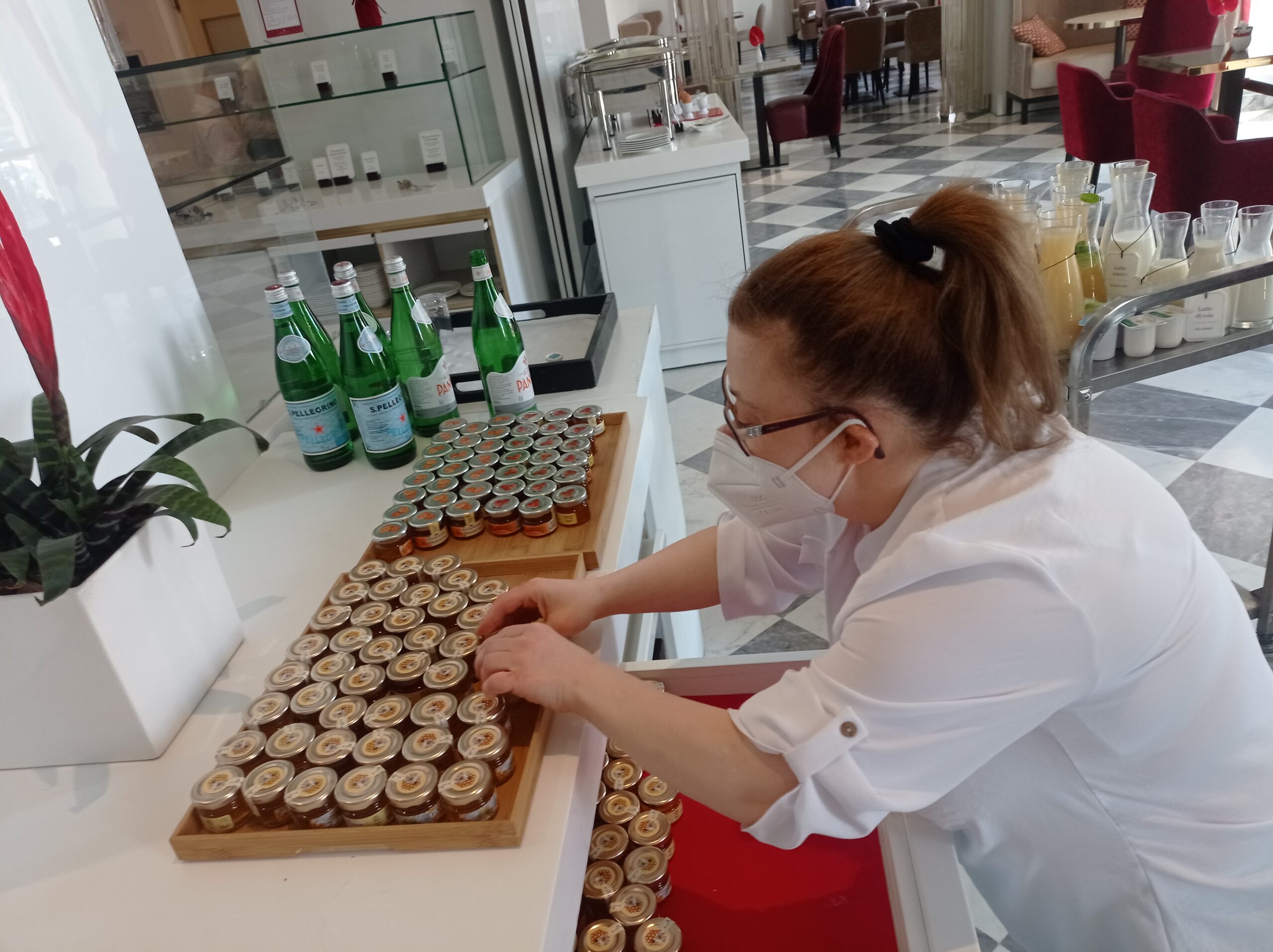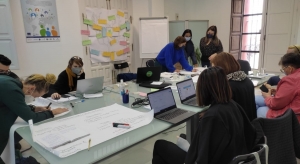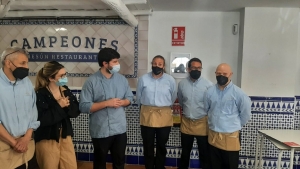As you may (perhaps) know, traineeships abroad are one of the most unique features offered by the Valueable Network. These experiences are not only a great opportunity for persons with disabilities to acquire indispensable transferable skills for future employment, but also provide real benefits for hospitality sector businesses. Namely, they get to enhance their corporate social responsibility and to face the problem of staff shortage due to the high turnover rate typical of the industry. An issue that has enormously grown with the Pandemic situation. Creating an open job market and inclusive work spaces is essential to fight enduring stigma and preconceptions still held by many employers. We have collected testimonies from our members who have participated in these cross-European exchanges to show you how and why this initiative works in practice!
Claudio Canaletto, the Restaurant Manager at NH Hotel Roma Palazzo Cinquecento, has given us his feedback on the 3 week-long internship experience in March 2022 with two Hungarian trainees – Judit Fazekas and Péter Perjési, from the association Down Alapítvány. Claudio confessed that this was his first time working with persons with disabilities, after which he believes Valueable is “undoubtedly a fantastic project”. The experience was eye-opening and he can now imagine a differently structured workforce. Here are some anecdotes about the trainees he shared with us:
“Judit has mastered the task of setting up the breakfast buffet and is very attentive to detail. She has developed a good connection with her colleagues and brings a calming presence during the service.”
“Péter loves being in direct contact with the clients, therefore he waits tables with various other hotel staff members. He is quite a jokester but also very loving.”
Even though Claudio and the trainees spoke different languages (Italian and Hungarian), they managed to overcome initial challenges and adapt their communication styles. Ultimately they could understand each other effectively via hand gestures, facial expressions and basic English phrases. The accompanying tutor, Anita Pazdernyik, played a role in facilitating such exchanges, given her more in- depth knowledge of English, but, by the end of the 3 weeks, her help was minimal as the trainees mastered their tasks. Finally, she would no longer assist in the breakfast service, leaving room for Péter and Judit to be independent and had become well integrated with the Hotel team. Salvatore Trani, the General Manager of Roma Palazzo Cinquecento Hotel, gave a moving speech when the trainees had to depart back to Hungary: “Even though you are leaving now, you will always be part of the hotel.”
Massimo Raineri, Food and Beverage Manager at Nhow Milano, worked alongside Carolina Vieira and Miguel Guerra, trainees from the Portuguese association DiferencasAPPT21, during their training. He told us that, for him and the rest of the staff, it was the first instance where they got to work with people with disabilities. Because of this, prior to the trainees’ arrival, Massimo and the rest of the staff had many doubts, they didn’t know what to expect and were uncertain of how the project would turn out. However, in hindsight, he could confidently say that this was overall a pleasant experience and much-welcomed novelty, “without doubt to be repeated”.
Given that at Nhow Milano they are used to taking interns from hotel schools who are already familiar with the tasks and duties of a restaurant kitchen, forming Carolina and Miguel took more time and attention. Thankfully it was a calm period at the hotel, so the staff could truly follow the trainees and accompany them with care throughout the 3-week journey. Despite some linguistic complications, the staff and the trainees really bonded and formed a deep connection by the end of the traineeship. One of the last days it was Carolina’s birthday and they even threw her a surprise party!









 The staff met in Seville, at Incoma’s headquarters. The Joint Staff Training Event was held face to face between 29th, 30th, 31st of March and was introduced with an online meeting on 18th of March, which all partners participated to. This preliminary online meeting gave everyone the possibility to know each other, share training course module, content, methodologies, and the agenda of each session. When in Seville, participants (3 trainers and 9 VET mobility project designer) had the possibility to work together face to face. During the meeting AIPD (expert partner in ID learner mobility) exposed the group what a VET operators must keep in mind when designing and preparing the mobility with Id Learners. During the other work session, AIPD, INCOMA and Cap Ulysse explained the group what operators should do along and after the mobility, as well as the financial arrangements when involving ID learners during mobility. Last day dealt with the monitoring and evaluation of mobility experience, Cap Ulysse shared with the group tools and methodologies for granting the mobility experiences a high-quality level and outcome.
The staff met in Seville, at Incoma’s headquarters. The Joint Staff Training Event was held face to face between 29th, 30th, 31st of March and was introduced with an online meeting on 18th of March, which all partners participated to. This preliminary online meeting gave everyone the possibility to know each other, share training course module, content, methodologies, and the agenda of each session. When in Seville, participants (3 trainers and 9 VET mobility project designer) had the possibility to work together face to face. During the meeting AIPD (expert partner in ID learner mobility) exposed the group what a VET operators must keep in mind when designing and preparing the mobility with Id Learners. During the other work session, AIPD, INCOMA and Cap Ulysse explained the group what operators should do along and after the mobility, as well as the financial arrangements when involving ID learners during mobility. Last day dealt with the monitoring and evaluation of mobility experience, Cap Ulysse shared with the group tools and methodologies for granting the mobility experiences a high-quality level and outcome. At the end of the meeting, all the participants went to lunch together at the “Campeones” restaurant, run by young people with Down’s Syndrome, an excellent example of the application of what had been learnt during the meeting and, above all, the realisation of how applicable the PR.E.S.T.O. project is.
At the end of the meeting, all the participants went to lunch together at the “Campeones” restaurant, run by young people with Down’s Syndrome, an excellent example of the application of what had been learnt during the meeting and, above all, the realisation of how applicable the PR.E.S.T.O. project is.